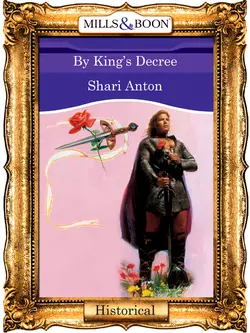By King′s Decree

Shari Anton
Тип: электронная книга
Жанр: Современная зарубежная литература
Язык: на английском языке
Стоимость: 152.29 ₽
Статус: В продаже
Издательство: HarperCollins
Дата публикации: 16.04.2024
Отзывы: Пока нет Добавить отзыв
О книге: The King Had Granted Them A Year Of LoveGerard of Wilmont wanted nothing more than to make Ardith of Lenvil his cherished bride. But what if he and his Saxon flame were not blessed with the heir that would ensure their union would last forever?Torn Between Joy and Despair, the lady Ardith pondered the royal decree that betrothed her to Gerard, Baron of Wilmont, for though he had forever been the lord of her heart, she knew that cruel fate had made her fit to be no man′s wife… !